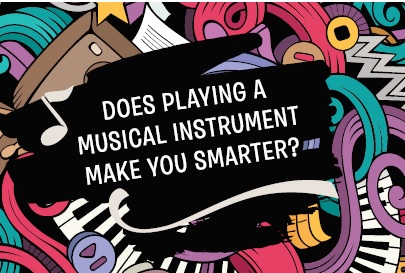Does Playing a Musical Instrument Make You Smarter?
Neuroscientists identify a link between musical training and executive function.
Albert Einstein's mother was a talented musician who made musical expression a part of daily home life when her children were growing up. Albert Einstein began playing the violin when he was 6 years old. By the age of 13, he was playing Mozart's sonatas. Einstein once said, "Life without playing music is inconceivable to me. I live my daydreams in music. I see my life in terms of music... I get most joy in life out of music."
As the father of a 6-year-old, I am grateful that my daughter has developed a love of playing both the piano and violin. Did you play a musical instrument growing up? Do you continue to play an instrument today?
A new study from Boston Children’s Hospital found a correlation between musical training and improved executive function in both children and adults. Previous studies have identified a link between musical training and cognitive abilities, but few have looked specifically at the effects of early musical training on executive function.
In a previous Psychology Today blog post titled “Musical Training Optimizes Brain Function” I write about previous research that found musical training can cause fundamental changes in both the structure and function of a young person's brain.
Three Brain Benefits of Musical Training:
1. Musicians have an enhanced ability to integrate sensory information from hearing, touch, and sight.
2. Beginning training before the age of seven has been shown to have the greatest impact. The age at which musical training begins affects brain anatomy as an adult.
3. Brain circuits involved in musical improvization are shaped by systematic training, leading to less reliance on working memory and more extensive connectivity within the brain.

